 The conversations at my family dinner table usually center around daily activities: what the kids did at school, which beach are we going to this weekend, whose pool can we finagle an invitation to – normal things. Recently, while my kids and I visited with my older brother, we showed them some pictures of the two of us growing up in the 1980s. They were particularly interested in the pictures seen at left (and below), of my brother and me at the battlefield in Gettysburg, Pennsylvania. Questions flew, such as: “Wow, dad, is that a real cannon?” “Does it still work?” and “Can we go there someday so I can sit on the cannon?” Continue reading Still relevant today
The conversations at my family dinner table usually center around daily activities: what the kids did at school, which beach are we going to this weekend, whose pool can we finagle an invitation to – normal things. Recently, while my kids and I visited with my older brother, we showed them some pictures of the two of us growing up in the 1980s. They were particularly interested in the pictures seen at left (and below), of my brother and me at the battlefield in Gettysburg, Pennsylvania. Questions flew, such as: “Wow, dad, is that a real cannon?” “Does it still work?” and “Can we go there someday so I can sit on the cannon?” Continue reading Still relevant today
All posts by Andrew Krea
The real Molly Pitcher
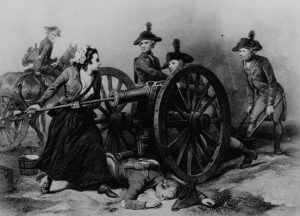
I recently stumbled upon a reference to Molly Pitcher, a woman from Pennsylvania who fought with her husband during the Revolutionary War for a New Jersey militia unit, and whom New Jersey has adopted as their own heroine of the war, lifting her to almost cult status. Who was this legendary woman? Was she a real woman who fought in the war?
In Emily J. Teipe’s 1999 article “Will the Real Molly Pitcher Please Stand Up?” in Prologue Magazine, she cites Robert Leckie’s text,[1] which states that Molly Pitcher was actually Mary Ludwig Hayes, a daughter of German immigrants, who fought alongside her husband, John Hayes, in Captain Francis Proctor’s company in the Pennsylvania Artillery.[2] Continue reading The real Molly Pitcher
A voice from the Revolutionary War
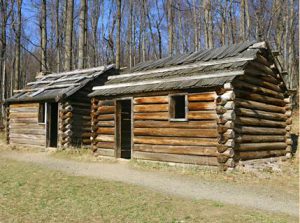
While recently researching an American Revolutionary War soldier who was a lieutenant in the Eastern Battalion of the Morris County, New Jersey militia, I encountered a fascinating historical text from 1975 entitled New Jersey in the American Revolution, 1763–1783, A Documentary History. This text was produced by the New Jersey Historical Commission and edited by Larry R. Gerlach.
There are countless texts and online resources available which accurately state the causes and consequences of the Revolutionary War, but I have encountered few sources which display first-hand accounts of men (and women!) in such a detailed and biographical sense as this text. Continue reading A voice from the Revolutionary War
Young New Hampshire Mariners
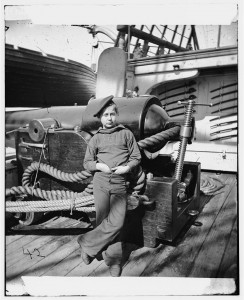
Do you have an ancestor from New Hampshire who was working at sea at the young age of 10 or 12? Have you seen a U.S. Federal Census record that states that your ancestor was a “mariner” at age 13? Did you think it was a mistake or an oversight? In fact, many boys as young as 10 were working on ships in New Hampshire in the late 1700s and early 1800s. Continue reading Young New Hampshire Mariners
Concerning Bass
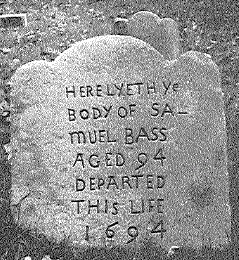 Do you have a common last name whose origin you have always wondered about, such as Lewis, Adams, or Bass? Did you ever wonder if you were related to a famous person with the same surname? A helpful research tip to figure this out is to search for information regarding the first ancestor that you can find in America, and then attempt to find common ancestral lines. Continue reading Concerning Bass
Do you have a common last name whose origin you have always wondered about, such as Lewis, Adams, or Bass? Did you ever wonder if you were related to a famous person with the same surname? A helpful research tip to figure this out is to search for information regarding the first ancestor that you can find in America, and then attempt to find common ancestral lines. Continue reading Concerning Bass
World War I Draft Registrations
 World War I Draft Registration Cards can be filled with useful and pertinent information about our ancestors. They can show us birthplaces, birthdates, parents’ nationalities, height, weight, hair color, and eye color. Continue reading World War I Draft Registrations
World War I Draft Registration Cards can be filled with useful and pertinent information about our ancestors. They can show us birthplaces, birthdates, parents’ nationalities, height, weight, hair color, and eye color. Continue reading World War I Draft Registrations
Natural disasters and genealogy

While natural disasters are terrible, and frightening to contemplate, it is important when researching genealogy to be mindful of the sometimes terrifying events through which our ancestors lived. Sometimes it took a terrible event to make a community push their record-keeping to a higher level and record the people who lost their lives or property. The top 10 United States natural disasters are recorded, and they range from 8,000 people dead in the 8 September 1900 hurricane that swept through Galveston, Texas, to 695 dead in the 18 March 1925 tri-state tornado that ripped through Missouri, Illinois, and Indiana. The GenDisasters website breaks down disasters state by state, along with Canada. Continue reading Natural disasters and genealogy
Gravestones and name changes
 Anyone who has researched genealogy knows that names can be spelled many different ways across a variety of records. I once found twelve different spellings of one family’s surname during a research project here at NEHGS. Recently, in my own personal family research, I’ve realized that another problem can occur when names are shortened across the generations. Continue reading Gravestones and name changes
Anyone who has researched genealogy knows that names can be spelled many different ways across a variety of records. I once found twelve different spellings of one family’s surname during a research project here at NEHGS. Recently, in my own personal family research, I’ve realized that another problem can occur when names are shortened across the generations. Continue reading Gravestones and name changes
Excerpts from Martha Anne Kuhn’s diary, 1836
 Martha Anne (Kuhn) Clarke kept a diary in 1836, while a student at the Temple School in Boston. The series of excerpts began here and continued here and here. In this installment she writes about the conclusion of a journey around New England. Continue reading Excerpts from Martha Anne Kuhn’s diary, 1836
Martha Anne (Kuhn) Clarke kept a diary in 1836, while a student at the Temple School in Boston. The series of excerpts began here and continued here and here. In this installment she writes about the conclusion of a journey around New England. Continue reading Excerpts from Martha Anne Kuhn’s diary, 1836
Excerpts from Martha Anne Kuhn’s diary, 1836
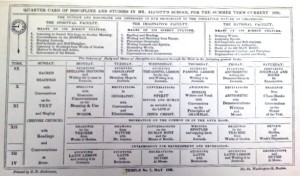
Martha Anne (Kuhn) Clarke kept a diary in 1836, while a student at the Temple School in Boston. The series of excerpts began here and continued here. In this installment she writes of her journey through western Massachusetts and into New York. Continue reading Excerpts from Martha Anne Kuhn’s diary, 1836